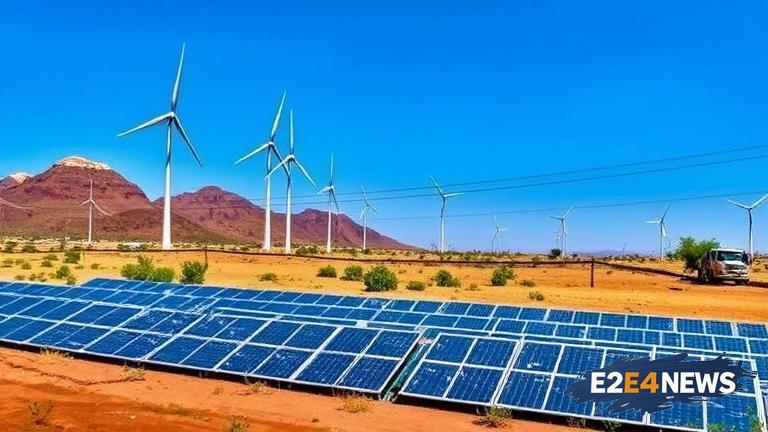The African continent is witnessing a significant shift towards renewable energy, driven by the need to address the pressing issues of energy access, energy security, and climate change. With many countries still struggling to provide reliable and affordable electricity to their citizens, renewable energy has emerged as a viable solution. Solar and wind power are leading the charge, with countries like South Africa, Egypt, and Morocco investing heavily in these sectors. The cost of renewable energy technologies has decreased dramatically over the years, making them more competitive with fossil fuels. This has led to a surge in investment, with many international companies and organizations committing to support Africa’s renewable energy ambitions. The African Union’s Agenda 2063 has set a target of ensuring access to clean and affordable energy for all Africans by 2030. To achieve this, the continent will need to increase its renewable energy capacity significantly. Several countries have already made notable progress, with Kenya, for example, generating over 70% of its electricity from renewable sources. Rwanda has also set an ambitious target of becoming a carbon-neutral economy by 2050. The benefits of renewable energy are numerous, including reduced greenhouse gas emissions, improved air quality, and enhanced energy security. Moreover, renewable energy can create jobs, stimulate local economies, and contribute to sustainable development. However, there are still significant challenges to overcome, including the lack of infrastructure, limited access to financing, and policy and regulatory frameworks that often favor fossil fuels. To address these challenges, African governments, international organizations, and the private sector must work together to create an enabling environment for renewable energy development. This includes investing in grid infrastructure, developing supportive policies, and providing training and capacity-building programs for local communities. The international community has a critical role to play in supporting Africa’s renewable energy transition, through initiatives such as the African Renewable Energy Initiative and the Green Climate Fund. These efforts aim to mobilize funding, technology, and expertise to support the development of renewable energy projects across the continent. As the world transitions towards a low-carbon economy, Africa has the opportunity to leapfrog traditional fossil fuel-based development and embrace a cleaner, more sustainable energy future. With its vast renewable energy resources, the continent can become a global leader in the transition to a low-carbon economy. The potential for renewable energy in Africa is vast, with estimates suggesting that the continent could generate up to 1 terawatt of solar energy by 2030. To realize this potential, it is essential to address the existing barriers and create an enabling environment for renewable energy development. This includes promoting policy and regulatory frameworks that support the development of renewable energy, investing in infrastructure, and providing access to financing and technology. By working together, African countries can unlock the full potential of renewable energy and create a brighter, more sustainable future for their citizens. The transition to renewable energy will require significant investment, but the benefits far outweigh the costs. A study by the International Renewable Energy Agency found that every dollar invested in renewable energy generates up to three times as much economic benefit. Furthermore, renewable energy can help to reduce poverty, improve healthcare, and enhance food security, making it a critical component of sustainable development. As the African continent continues to grow and develop, it is essential that renewable energy plays a central role in its energy mix. With the right policies, investments, and partnerships, Africa can become a global leader in the transition to a low-carbon economy and create a brighter future for its citizens.
